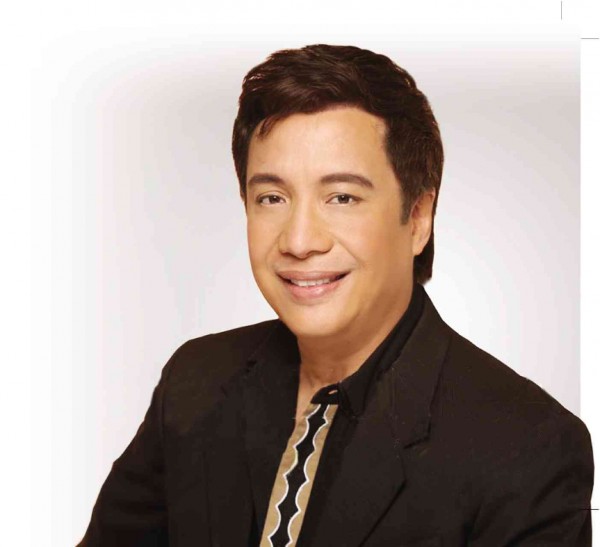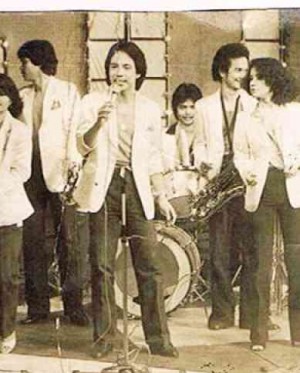One night, during the early years of martial law, Nonoy Zuñiga, then a young folk singer, was in the middle of a gig at Alfie’s in Quezon City, when rattling sounds of gunshots outside the lounge caught his attention. But he carried on, convinced that he would be safe inside the nightclub.
But before he knew it, the pub’s front door, made of thick glass, smashed into pieces. Then in came a man clutching his abdomen.
It was the place’s owner. He had gotten into a fight. Realizing that his employer was wounded, Zuñiga promptly stopped his set. But the man simply waved at him and said, “Continue singing!”
He played Cat Stevens’ “Wild World,” whose title, somehow, described what it was like for him being a music artist during the dictatorship. It was a time when, Zuñiga recalled, one could get into trouble with patrons for as simple as turning down song requests.
Intoxicated
In a provincial show with his group the Family Birth Control Band in the late 1970s, a drunk man pointed a gun at Zuñiga for ignoring his request. “I didn’t entertain him as he was so intoxicated…He turned out to be a politician,” the singer, now based in the United States, related to the Inquirer in an e-mail interview. “He stopped the show, and had to be restrained. We apologized afterward.”
In another gig, Zuñiga was passed a piece of paper that read, “Please sing ‘Release Me’”—a request most peculiar, he thought, since his band specialized in dance music by artists like Earth, Wind and Fire, Commodores, The Stylistics, Village People and Bee Gees. Not Engelbert Humperdinck.
“We don’t know this song,” declared the singer, who used to frequently hold shows at the Manila Hotel, Trader’s Hotel, Holiday Inn and at clubs like Flame and Bayside.
After a few minutes, he got yet another slip. This time the message was written in big letters, and appended at the end was the name of a patron who described himself as a colonel.
Zuñiga and his band scrambled onstage. “I knew only one verse,” he recalled. “But we got a generous tip!”
He found such experiences terrifying, but still oddly thrilling. Things, however, ceased to be exciting on the night of Oct. 4, 1980; what happened then was plain terrifying.
Explosion
As Zuñiga was changing into his costume in a restroom at the Westin Philippine Plaza’s Siete Pecados bar in preparation for a show, a bomb planted in a trash can exploded, severely injuring the singer’s right leg, which had to be amputated later on.
“When I saw my leg after I was hit by the explosion, I knew that I was going to lose it. All I could do then was pray and think that I didn’t want to die yet,” he said.
The incident was part of a series of bombings that rocked the metro from June to October 1980. The perpetrator, said to be an opposition group that called itself the April 6 Liberation Movement, reportedly targeted hotels, as well as government buildings in an attempt to shake the regime of Ferdinand Marcos.
“The city was in chaos,” he recalled. And Zuñiga considered himself “collateral damage.”
“I wanted to quit music after that. Our band did dance routines, which I really loved. I pitied myself because I couldn’t do those things anymore,” he related. “I admit that I questioned God at one point. But I was also thankful it didn’t happen to my loved ones.”
He was gravely depressed, he said, and spent weeks in the hospital trying to make sense of what happened to him. “But with faith and the support of my family and fellow singers, I gained strength. They encouraged me, [saying] there was still a beautiful life ahead of me,” he said. “Perhaps the tragedy happened for a reason.”
In 1981, Zuñiga was tapped by the fourth Metro Manila Popular Music Festival, which needed a handicapped artist to sing a composition for the disabled, “Ako Ay Ikaw Rin,” in observance of the United Nations’ International Year of the Disabled Persons.
After the tilt, Zuñiga was approached by the acclaimed composer and musical director Willy Cruz and was offered a contract with Jem Records. “I didn’t want it at first, because I was still wallowing in self-pity. People would make fun of me. But my family pushed me to go for it. There’s no harm in trying, they told me,” he related. “After one week of thinking it over, I accepted it.”
Medical school
Soon, he embarked on a solo music career, collaborating with Cruz on such songs as “Doon Lang,” “Kumusta Ka,” and “Never Ever Say Goodbye,” which cemented his place in the music industry. All the while, he was finishing medical school at the University of Santo Tomas.
Zuñiga also found himself judging contests for and giving inspirational talks to people with disabilities.
In 1989, he was appointed director of the National Council for the Welfare of Disabled Persons in which Zuñiga served for five years. In his tenure, he spearheaded various activities and helped create a magna carta for the disabled.
Now, Zuñiga sees the tragedy as a “blessing in disguise,” which opened doors for him.
“I probably won’t be a well-known singer otherwise!” he said. “I realized that I could be an inspiration to others…that if I nurture and share my gifts and talent [with others], I could still be useful to society.”
Admittedly, Zuñiga didn’t have a full grasp of what was really happening around him when he was a teenager during martial law. But eventually he saw it as something “orchestrated by those greedy for wealth and power,” and whose effects “we still feel today.”
“Painful lessons learned,” he said. “It’s important to honor the thousands who sacrificed their lives to seek justice and democracy.”
For a time Zuñiga coped with fear of trash cans and firecrackers, which naturally triggered memories of the bombing.
According to him, he has gotten over it through the years, and when he looks back on that fateful night, “I just smile.”



